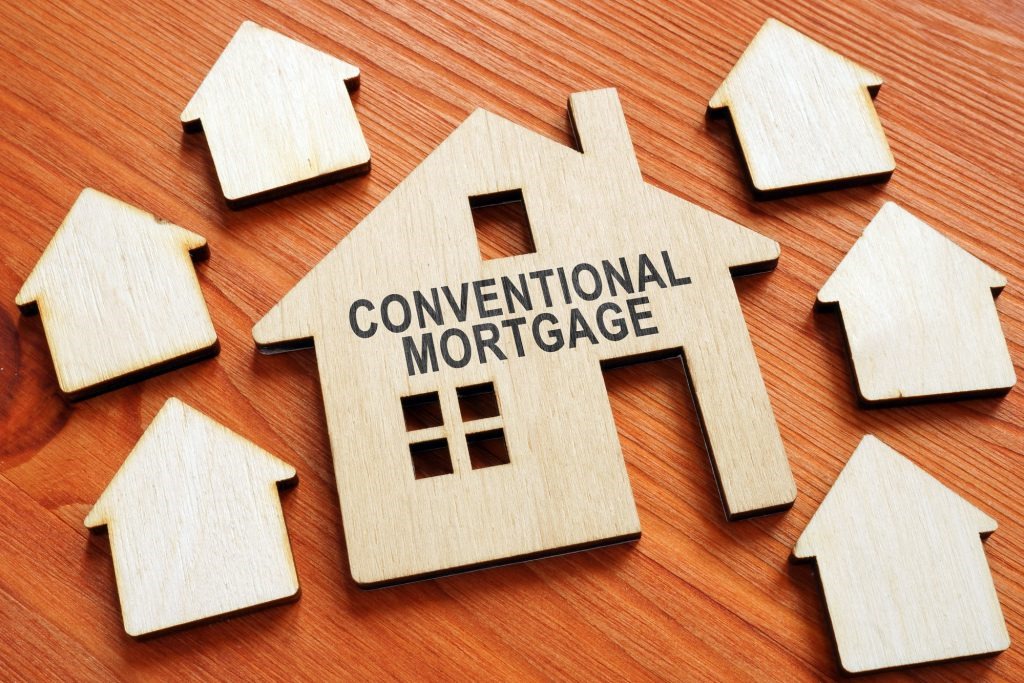Buying a Home in Farmington Hills MI? Conventional Mortgages 101: This year, you are finally ready to buy a home in Farmington Hills MI. Whether it is your first time or you are an experienced homebuyer, all the mortgage options out there can be overwhelming. Not all home loans are the same and knowing what kind of loan is most appropriate for your particular situation will prepare you for talking to lenders and getting the best deal.
In this article, we are going to take a closer look at conventional mortgages so that you can determine whether this type of loan is the right one for you.
- The majority of home loans are conventional loans
- Conventional loans typically cost less than FHA loans but they can be harder to qualify for.
- Conventional loans are not guaranteed in part or in full by the government.
- Conventional loans are offered by private lenders and may be secured by Freddie Mac or Fannie Mac (government-sponsored entities)
Conventional loan requirements
Requirements for conventional loans vary by lender, but you typically need to demonstrate credit-worthiness and the ability to make your payment every month. Here are some things that a conventional loan lender might look at:
- Your credit score. In many cases, the bottom cut-off for conventional loan approvals is a credit score of 620. Though depending on other factors, such as the amount of the mortgage and your income, you may need a higher score to qualify.
- Your credit history. Mortgage lenders may look more in-depth at your credit than other lenders, and you may be asked to clear up old accounts or negative items before final approval.
- Your income and debt. The lender wants to ensure that you’re able to pay the required monthly amount. They’ll look at how much you make, as well as how much debt you already have—the ratio of your debt to your income. If your debt is already taking up a large chunk of your income every month, you’re less likely to be able to pay a mortgage and less likely to get approved.
- The value of the home. Typically, banks won’t approve a loan that’s more than the value of the home in question. You usually have to get the property appraised before a mortgage can be finalized for this reason.
Types of conventional loans
Conventional loans come in a wide range of types. Here are the five most common forms of conventional financing:
1). Conforming loans
A conforming loan simply means the loan amount falls within maximum limits set by Fannie Mae or Freddie Mac, the government-sponsored enterprises (GSEs) that back most U.S. mortgages. The main difference between Fannie and Freddie comes down to who they buy mortgages from. Fannie Mae mostly buys mortgage loans from commercial banks, while Freddie Mac mostly buys them from smaller banks or “thrift” banks. Fannie and Freddie must purchase loans that fall within the loan limits set by the Federal Housing Finance Agency, which is why conventional loan limits exist. The types of home loans that don’t meet these guidelines are considered non-conforming loans.
The 2021 maximum limit for conforming loans on single-family homes is $548,250 for most counties across the U.S. Conforming loans are best for borrowers with good credit and low debt-to-income ratios who are looking to get a mortgage with a loan amount that doesn’t exceed conforming loan limits.
2). Non-conforming or ‘jumbo’ loans
Also known as non-conforming loans, jumbo loans are conventional mortgages that exceed the conforming loan limits in a given area. Higher-end homes are often associated with this loan type. Because their significantly higher balances don’t conform to Fannie Mae and Freddie Mac guidelines, jumbo loans aren’t eligible for purchase by either entity.
Jumbo loans differ from high-balance loans, which are conforming loans with higher balances to reflect average home prices in high-cost areas such as several counties throughout New York and California. The conforming loan limit on single-family homes in high-cost areas for 2021 is $822,375. Jumbo loans are best for borrows who are looking to finance the purchase of a home that costs more than the conforming loan limit in their county.
3). Fixed-rate loans
A fixed-rate loan is a type of conventional mortgage that has the same interest rate for the life of the loan and won’t change. The principal and interest portion of your monthly mortgage payment will be the same amount each month. You’ll generally pay more interest with a longer-term loan and interest rates typically are higher than rates on adjustable-rate mortgages. It also takes longer to build equity in your home with a fixed-rate mortgage. This type of conventional loan is best for borrowers who plan to stay in their home for at least seven to 10 years and who prefer predictable, stable mortgage payments, so they can more precisely budget other expenses month to month.
4). Adjustable-rate mortgages (ARMs)
Unlike the stability of fixed-rate loans, adjustable-rate mortgages (ARMs) have fluctuating interest rates that can go up or down depending on market conditions. Many ARM products have a fixed interest rate for a few years before the loan changes to a variable interest rate for the remainder of the term. For example, if you have a 5/1 ARM, your mortgage rate would be fixed for the first five years and then adjust annually for the remainder of the loan term.
ARMs typically start out with lower rates than fixed-rate mortgages, but you can expect rates to increase over time. Most ARMs have a lifetime cap of 5%. During the years that the rate adjusts, it can go as high as 5% above the initial fixed-rate, according to the CFPB. Adjustable-rate mortgages are best for borrowers who are comfortable with a certain level of risk. If you don’t plan to stay in your home beyond a few years, an ARM could save you big on interest payments.
5). Non-qualified mortgages
A Non-qualified mortgage (Non-QM) is a loan that doesn’t meet the standards of a qualified mortgage and uses non-traditional methods of income verification to help a borrower get approved for a home loan. This type of conventional loan caters to borrowers with low credit scores or other unique financial situations such as self-employed borrowers or those who rely on commissions or bonuses for a large portion of their income. Non-qualified mortgages will typically have higher mortgage rates and fees than prime mortgages, which are reserved for buyers with excellent credit scores.
Non-QM loans have gotten a bad rap due to the large number of subprime loans that were doled out before the housing crisis and then went into foreclosure. Thanks to a tightening of federal regulations on the mortgage industry, lenders are now more cautious about who they loan to – non-QM lenders included. But for prospective homebuyers, there are plenty of non-QM lenders who can serve their needs. This type of conventional loan is best for borrowers who have serious blemishes on their credit profile, a DTI ratio above 43% or other unique financial situations, but can comfortably afford a mortgage.
Advantages of conventional loans
Conventional loans usually require less paperwork and can be obtained more quickly than government-insured loans. A conventional loan is a great option if you have a solid credit score and little debt. One of the best advantages of conventional loans is the mortgage insurance (MI). Typical monthly MI for FHA loans is 1.35 percent of the loan amount and in most cases will last for the life of the loan. Whereas typical conventional lending MI can be as low as .50 percent of a loan amount on a 95 percent Loan-To-Value (LTV), depending on your fico score. You can avoid PMI by paying 20% of the loan upfront, which will lower your mortgage payments.
Conventional loans can be more flexible than FHA or other government-backed loans. Lenders of this type of loan don’t have to follow specific government guidelines, which means they may be able to work with borrowers who don’t fit those requirements. They can also provide mortgages for properties that are more expensive. In most cases, borrowers save money in the long run with a conventional loan because there’s no upfront mortgage insurance fee, and the monthly insurance payments are cheaper.
Disadvantages of conventional loans
Significant documentation is required with this type of loan to verify income, assets, down payment, and employment. Conventional loans also generally come with a higher bar for approval because they are not guaranteed. Because the lender is taking on all the risk, risk, you may need a higher credit score and stronger debt-to-income ratio to qualify for these loans.
Closing costs on a conventional loan usually must be paid at settlement and can’t be rolled into the mortgage as they can with an FHA loan. Such things as loan origination fees are set by the lender, not the government agency, and may be higher. Additionally, lenders may require processing or application fees not applied with government-insured loans. With a conventional loan, you are also more than likely have to pay PMI if your down payment is less than 20 percent of the purchase price.
The Takeaway
Before you move forward on a mortgage, carefully consider your individual financial situation. Review your circumstances and needs and do your research, so you know which types of mortgage loans are the best fit and most likely to help you reach your goals.
Partner with Award-winning Farmington Hills, MI REALTOR® – Tom Gilliam
Tom Gilliam is proud to be a trusted REALTOR® in Farmington Hills MI for the past 20 years – offering his guidance and expertise to home buyers and sellers. Tom understands that buying or selling a home is a significant financial and life decision and that you are looking for someone you can trust. As your agent, Tom will protect your interests, advocate for you, negotiate on your behalf, and do whatever it takes to ensure a smooth transaction and the best results possible.
Tom works hard for his clients and is able to provide the kind of knowledge, skills, dedication, and expertise you need when buying or selling a home. Feel free to reach out to Tom directly at (248) 790-5594 or you can get in touch here.
Tom Gilliam, REALTOR®
RE/MAX Classic
29630 Orchard Lake Rd.
Farmington Hills 48334
Direct: 248-790-5594
Office: 248-737-6800
Email: Tom @ Homes2MoveYou.com
License #314578
[/et_pb_text][/et_pb_column][/et_pb_row][/et_pb_section]



